- Blog
- 9 Best WordPress Ecommerce Plugins for Your Store in 2025
9 Best WordPress Ecommerce Plugins for Your Store in 2025
-
Nikolett Lorincz
- Ecommerce
- 6 min read
Table of Contents
Choosing the best WordPress plugin for your ecommerce site isn’t rocket science, although it can certainly feel like it! With so many options and contradictory advice about which ones are best, how do you make the right choice for your WordPress site?
Do you choose the most popular WordPress ecommerce plugins? Or should you look for the ones that are the most secure? Or maybe the cost of the WordPress plugin should be the main deciding factor? What about customizability/flexibility?
Take a deep breath.
Anxiety about picking the best ecommerce plugin for your WordPress website is normal. Luckily for you, you’ve come to the right place.
In this article, you’ll learn the best ways to evaluate plugins and get a list of the most powerful WordPress ecommerce plugins available today.
Let’s get right into it!
How to find the top WordPress ecommerce plugins?
The criteria for selecting your WordPress ecommerce plugins can be very specific and tailored to your business goals. As a general rule, however, you should consider the following seven factors when evaluating ecommerce plugins:
1. Price of the plugin
You should always ask whether you need all the bells and whistles offered by a particular plugin.
For example, if you’re just starting to sell digital goods, you might want a plugin that offers the basics such as a variety of payment options, responsive templates, and good customer support.
There are excellent plugin options that offer essential features like these for free. Pricier ecommerce plugins often come with advanced features that you don’t necessarily need early on.
As you grow your WordPress website and need more robust features, you can upgrade accordingly. Most of the best ecommerce plugins (we’ll cover them a bit later) offer free plans with options to upgrade to pricier yearly plans.
2. Integrations
WordPress ecommerce plugins that offer a wide range of integration options can make your life easier. That’s because using different WordPress ecommerce plugins together can allow you to take advantage of their full potential.
For example, you can use a lead generation plugin to collect new email subscribers and then use an email marketing platform to send them welcome emails immediately. If your WordPress plugins don’t integrate, you’ll have to do a lot of extra work to transfer all the data you collect.
Remember, plugins are tools that help make running an ecommerce business easier. Choose ecommerce plugins that save you time and resources so that you can focus on growing your business.
3. Customization
In ecommerce, personalization is key. Providing a smooth, enjoyable experience on your WordPress store for every visitor sets you apart and gives you an important leg up.
Choose ecommerce plugins that allow easy customization. The keyword here is easy. Wrestling with complicated code or complicated software setups is draining and overwhelming, so it’s a good idea to look for digital products that offer drag-and-drop editors.
4. Payment solutions
A good ecommerce plugin should have support for your preferred payment gateways as default or via a simple extension.
Payment gateways are important for the long-term survival of your online business. Unstable payment gateways can cost you both time and money, and can lead to a host of other problems down the line.
5. Support
Make sure that the companies behind the ecommerce plugins you’re considering offer good support options. Whether it’s trouble with installation, scheduled maintenance, or a sudden crash, reliable support can save you a lot of money and time.
6. User reviews
A plugin with plenty of positive user reviews and a large user base is a good indication of quality and reliability. When an ecommerce plugin has a large number of active installations, this means that it’s highly trusted and probably a safe bet for your business.
Pro tip: Don’t just look at the best reviews—peek at the average (and even the negative) reviews to understand where the plugin could do a better job. The negative reviews often have detailed explanations as to why a plugin underperformed, and sometimes even contain constructive feedback for the plugin developers.
7. Updates and compatibility
When an ecommerce plugin isn’t regularly updated by the developer, it means that it’s less reliable and secure… especially when the developers aren’t keeping up with changes in data privacy law.
Compatibility with the newest versions of WordPress is important because older versions can cause WordPress sites to crash frequently and damage your company’s reputation.
So what's the best WordPress ecommerce plugin?
Here are 9 of the best WordPress ecommerce plugins. Let’s dive into what makes these ecommerce WordPress plugins the best of the bunch!
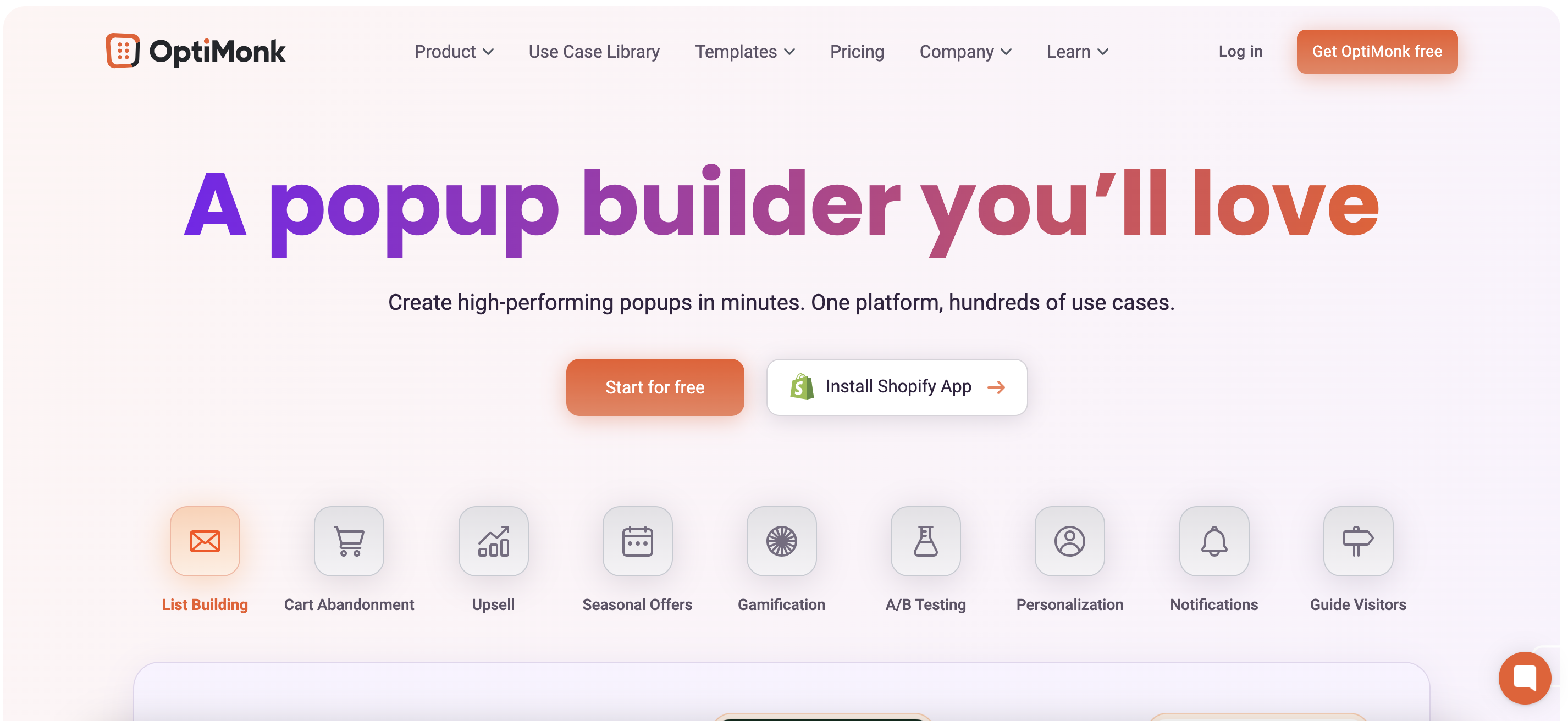
OptiMonk’s popup plugin can help you grow your email list, lower cart abandonment, and grow your sales. While traditional popups get a bad reputation for being intrusive and pushing users away from your online store, OptiMonk allows you to create effective popups that won’t annoy your visitors.
OptiMonk has all the features you need to create well-timed, personalized, behavior-specific popups. That’s why it’s earned a rating of 4.5 stars on wordpress.org!
Let’s take a closer look at some of its features.
Key feature #1: 300+ high-converting templates
OptiMonk’s huge template library makes it easy to get started in no time. There are over 300 templates to choose from, all of which are professionally designed and mobile friendly.
Even better, the templates are optimized for different use cases. Whether you’re looking to build your email marketing list or use an exit-intent popup to fight cart abandonment, you’ll find a template.
And there are a number of themes that help you create multiple visually-consistent campaigns. This leads to a smoother user experience on your ecommerce store.
Best of all, the entire library is available to users of the free version!
Check out some of the pre-made template below:
Key feature #2: Flexible drag & drop editor
The OptiMonk drag and drop editor allows you to customize your popups with ease and pack them full of ecommerce functionality.
With one click, you can add, edit, or remove any element.
And there’s a wealth of elements you can use. There are basic ones like text boxes, images, and buttons. And there are advanced features like countdown timers, product elements, and discount codes—just to mention a few examples.
Key feature #3: Triggering options
OptiMonk’s advanced triggering options are hugely beneficial when it comes to showing popup messages at the right time. The plugin for WordPress automatically monitors your visitors’ site behavior, so it can display popups exactly when you want them to be shown.
Some of the specific actions that can trigger your campaigns include:
- Exit-intent (on desktop and mobile)
- Timer-based triggering
- Scroll-based triggering
- On click triggering
- Post-JavaScript event triggering
An online store can effectively optimize the conversion rate of their popups when they have this much control over their timing.
Key feature #4: Advanced targeting
You can target your visitors with specific messages based on many different factors. When you deliver tailored messages to particular segments of your website visitors, you can deploy offers and promotions that will resonate with them.
As you know, the more relevant your messages are, the more likely they will be to convert. That’s why it’s great that OptiMonk allows you to create as many messages as you like for each visitor segment.
Specifically, you can target your visitors based on their location, the pages they’ve visited (or not), and utilize “cart rules” to set up specific popups based on what’s already in their cart. You can even build “sales funnels” to link all these different types of campaigns together.
And WordPress users can also create their own custom variables to determine who their popups appear to. You have endless options!
Key feature #5: A/B testing
You can easily A/B test your campaigns and keep track of their performance. Other plugins allow you to do this, but the unique feature that OptiMonk brings to this domain is the ability to gauge the statistical confidence of your results.
What’s statistical confidence? It’s a measurement that shows whether the performance of a specific campaign will stay consistent.
If a variant of your campaign has the highest conversion rate and statistical confidence of over 90%, it becomes the “champion variant.”
With OptiMonk, you can use the “Keep only the winner variant running” feature, which will automatically deactivate all the lower-performing variants once a champion is found.
Key feature #6: Advanced analytics system
OptiMonk’s advanced analytics allow you to see the performance of all your campaigns in terms of number of impressions, number of conversions, and conversion rates.
And WordPress stores can also see the amount of money OptiMonk generates for them.
OptiMonk also integrates with Google Analytics for additional data and analysis.
Key feature #7: Integrations
You can easily integrate OptiMonk with all the tools you use to run your online store. Below is a list of some of the many integrations available through OptiMonk (check out the full list here).
Pricing
Free, or from $29/month.
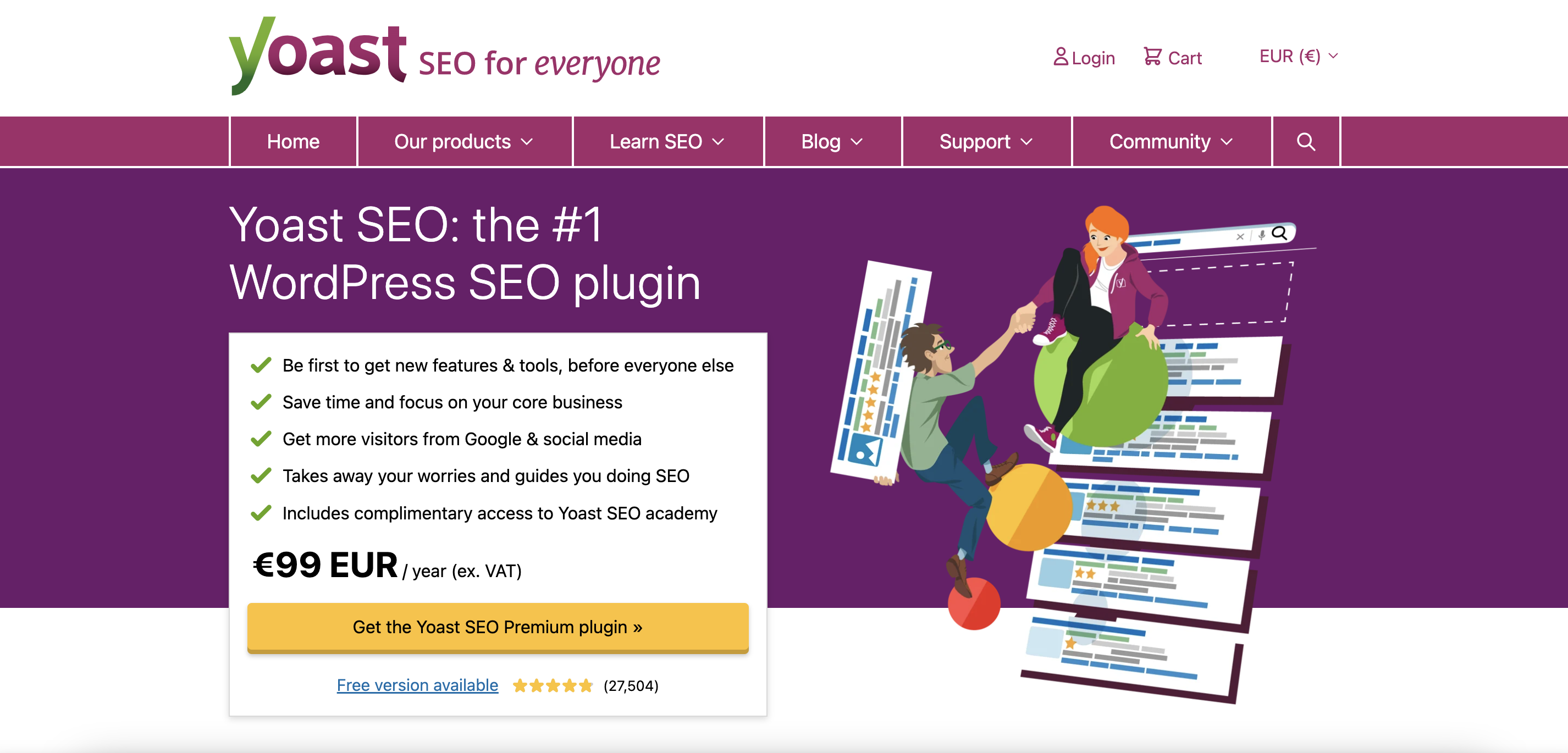
YoastSEO is one of the leading SEO tools to help drive quality traffic to your website and help you create powerful content that leads to more sales. When you rank highly on search engines for common queries, you’ll start seeing tons of traffic!
Key features:
- Thorough content and SEO analysis that ensures your content will rank well.
- The snippet preview shows you how your post or page will look in search engine results.
- Internal linking features that help you optimize site structure.
- Insights tool that shows you what your text focuses on to help keep content coherent with keywords.
Pricing:
Free, or from $8/month.
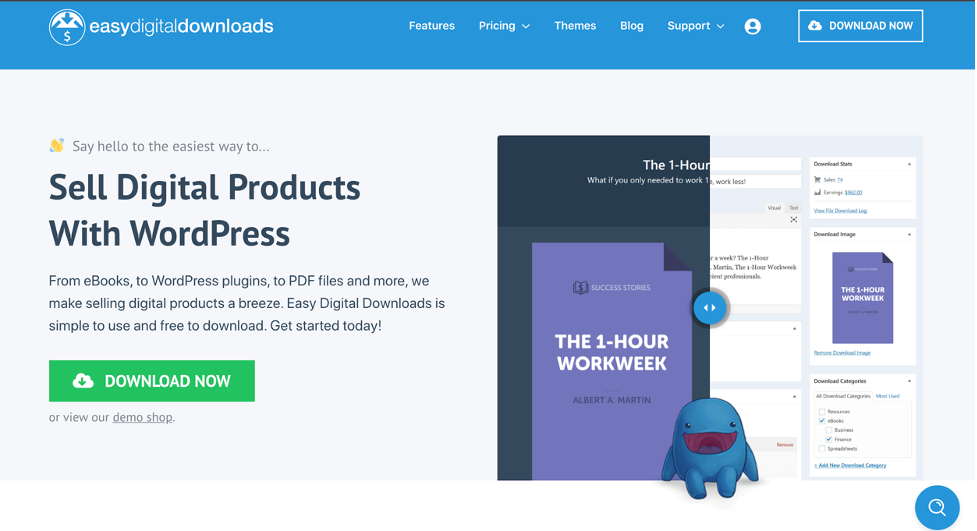
Easy Digital Downloads makes it easy for anyone to sell digital products… even newbies. It’s a lightweight plugin that helps you avoid “feature overwhelm” and gives you just the essentials you need to sell digital products, from payment gateways to digital downloads.
Key features:
- Large availability of extensions to handle everything from payment gateways to email marketing platforms.
- Compatibility with almost any WordPress theme, but there are also tailored themes built for the plugin.
- Simple and intuitive to use.
Pricing:
Free, plus premium version add-ons.

Reviews are an important aspect of running an ecommerce store. They often mean the difference between a passive browser and a customer.
Site Reviews provides an ecommerce solution for displaying reviews on your WordPress or WooCommerce store, and the plugin allows you to customize the appearance of customer reviews.
Key features:
- Your customers can rate products and services out of 5 stars and leave a review.
- You’re able to pin the best (or most helpful) reviews to ensure your visitors see them.
Pricing:
Free, plus premium version add-ons.
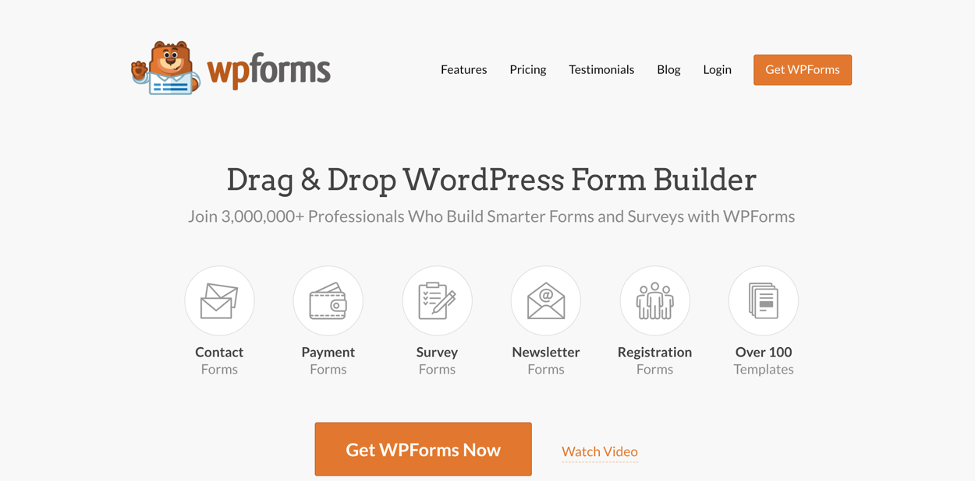
Providing a great user experience means listening to what users are saying and implementing changes accordingly. One great WordPress ecommerce plugin you can use to collect valuable feedback is WPForms.
Key features:
- You can quickly create a form without writing code using the drag and drop builder.
- It comes with smart survey fields such as a Likert scale, ratings, and multiple-choice questions.
- You can create polls and display real-time results on your site.
Pricing:
From $6.50/month.

One of the biggest reasons websites experience high bounce rates is because of broken links. Not only do they hurt your SEO, but they also ruin the user experience. This plugin monitors links on your site’s pages, posts, and custom fields so that you can fix broken links immediately.
Key features:
- The ability to edit links right from the plugin dashboard.
- Direct notifications via plugin dashboard (or email) for:
- links that don’t work
- missing images
- redirects
Pricing:
Free.

Boasting over 100,000 users, HubSpot’s WordPress plugin is essential for engaging and converting visitors. You get all-in-one marketing functionality like chatbots, live chat, forms, and even a CRM for contact management.
Key features:
- Quick and easy installation of the core plugin (no coding necessary).
- All functionality is accessible from within your WordPress dashboard.
- Integration with over 500 tools and software.
Pricing:
From $45/month.
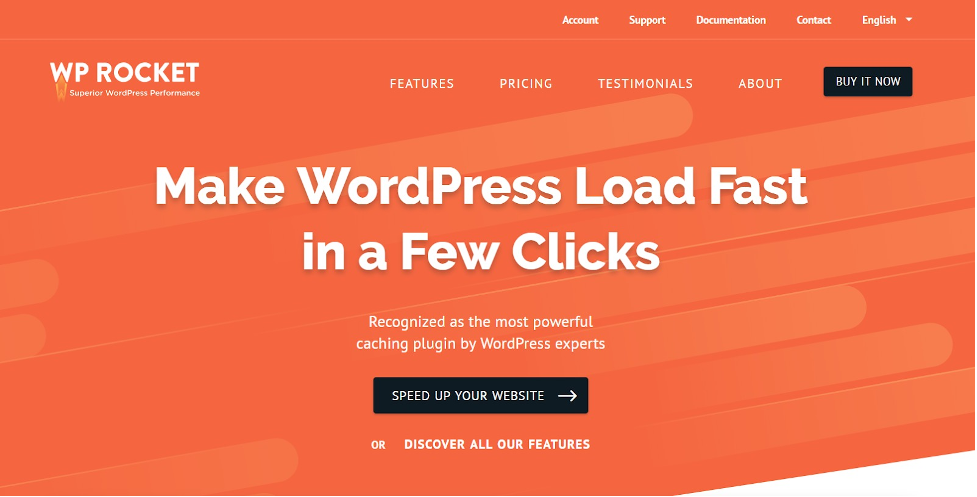
A fast-loading website is an essential part of running a successful ecommerce business. According to Kissmetrics, 40% of consumers will abandon a website if it takes more than 3 seconds to load. That’s a lot of lost traffic!
Enter WP Rocket, a powerful ecommerce plugin to boost your website’s speed and improve user experience. WP Rocket supports both page and browser caching, which means that when your visitors leave one page for another, the static content doesn’t have to be re-loaded.
Key features:
- It’s made for ecommerce, as it intuitively excludes the checkout page and cart pages from caching.
- It supports GZIP compression (this optimizes the rendering of web browsers, which saves bandwidth), cache and sitemap preloading, and database optimization.
- You can set it up in just a few clicks.
Pricing:
From $4/month.
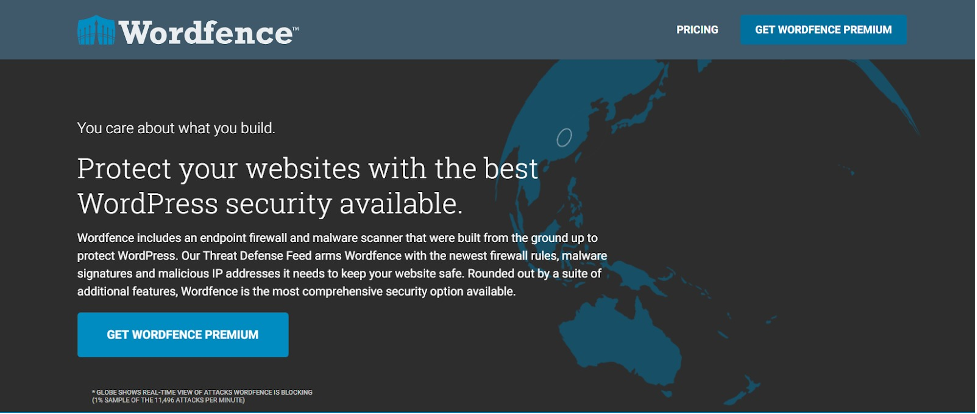
Running an online business unfortunately also means you’re prone to all kinds of cyberattacks.
Malware, phishing, and carding attacks happen even to the biggest retailers in the world— often because they did not have the proper security tools in place. Wordfence is an essential security plugin that offers a comprehensive cloud firewall and security scanner that dramatically improves your website’s security.
Key features:
- Real-time IP blacklist and malware signature updates.
- Endpoint firewall that doesn’t leak data or break encryption.
- A central dashboard center that helps you manage security for multiple sites in one place.
Pricing:
Free, or from $8/month.
Conclusion
That’s it! You now have a comprehensive list of the best ecommerce plugins for your WordPress site.
In this article, we also went over what to look for when browsing for ecommerce plugins and most importantly, you learned that plugins should serve as tools to help you hit your business goals.
So start with your top goals or challenges, decide which plugins will help the most, and get ready for some great results!
Migration has never been easier
We made switching a no-brainer with our free, white-glove onboarding service so you can get started in the blink of an eye.
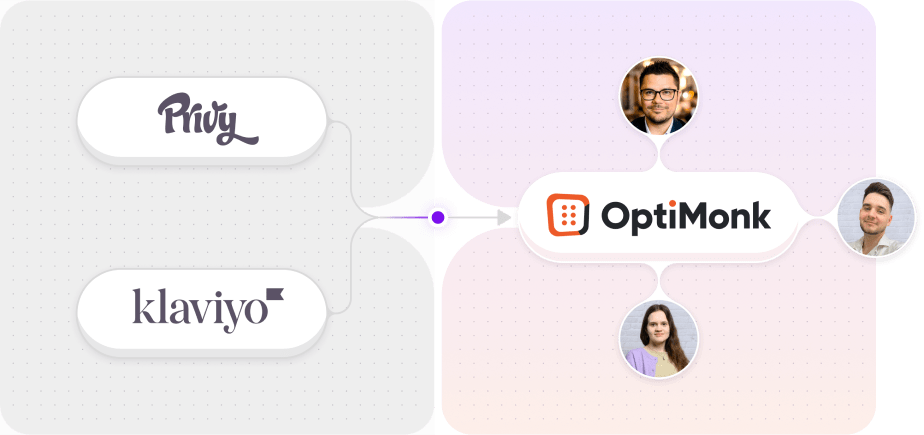
What should you do next?
Thanks for reading till the end. Here are 4 ways we can help you grow your business:
Boost conversions with proven use cases
Explore our Use Case Library, filled with actionable personalization examples and step-by-step guides to unlock your website's full potential. Check out Use Case Library
Create a free OptiMonk account
Create a free OptiMonk account and easily get started with popups and conversion rate optimization. Get OptiMonk free
Get advice from a CRO expert
Schedule a personalized discovery call with one of our experts to explore how OptiMonk can help you grow your business. Book a demo
Join our weekly newsletter
Real CRO insights & marketing tips. No fluff. Straight to your inbox. Subscribe now
Nikolett Lorincz
- Posted in
- Ecommerce
Partner with us
- © OptiMonk. All rights reserved!
- Terms of Use
- Privacy Policy
- Cookie Policy
Product updates: January Release 2025








